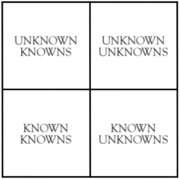Risk Management in Construction Projects
(→Response) |
|||
| Line 5: | Line 5: | ||
Risks are present already from the time a project starts. Therefore it is important to prioritise risk management, since it will likely lead to more problems if handling the risks is procrastinated. | Risks are present already from the time a project starts. Therefore it is important to prioritise risk management, since it will likely lead to more problems if handling the risks is procrastinated. | ||
| − | The goal of risk management is to increase the likelihood and impact of positive events and meanwhile decrease the likelihood and impact of negative events in construction projects. <ref>Project Management Institute | 2013 | "A Guide to Project Management Body of Knowledge" | (5th Edition)</ref> | + | The goal of risk management is to increase the likelihood and impact of positive events and meanwhile decrease the likelihood and impact of negative events in construction projects. <ref name="PMBOK">Project Management Institute | 2013 | "A Guide to Project Management Body of Knowledge" | (5th Edition)</ref> |
The tools applied in risk management process in construction projects are grouped into four categories: Identification, Assessment/Analysis, Response and Control. | The tools applied in risk management process in construction projects are grouped into four categories: Identification, Assessment/Analysis, Response and Control. | ||
| − | To identify and classify risks, tools such as ''Risk register'' containing ''foreseen and unforeseen events'' and ''Rumsfeld's known-unknowns'' are utilized. Moreover, the ''Probability/Impact Matrix'' is utilized for assessment and analysis of risk. Last but not least, ''ARTA'' diagrams are included for risk treatment and control.<ref> Winch, Graham M. | 2010 | "Managing Construction Projects" | (2nd Edition)</ref> <ref> Geraldi, Joana | Thuesen, Christian | Oehmen, Josef | 2016 | "How to DO projects" | Uncertainty |(Version 0.5)</ref> | + | To identify and classify risks, tools such as ''Risk register'' containing ''foreseen and unforeseen events'' and ''Rumsfeld's known-unknowns'' are utilized. Moreover, the ''Probability/Impact Matrix'' is utilized for assessment and analysis of risk. Last but not least, ''ARTA'' diagrams are included for risk treatment and control.<ref name="Winch"> Winch, Graham M. | 2010 | "Managing Construction Projects" | (2nd Edition)</ref> <ref name="HowTo"> Geraldi, Joana | Thuesen, Christian | Oehmen, Josef | 2016 | "How to DO projects" | Uncertainty |(Version 0.5)</ref> |
=Identification= | =Identification= | ||
| + | [[File:Rumsfeld.png|thumb|Rumsfeld known-known concept <ref name="HowTo"></ref>]] | ||
=Assessment and Analysis= | =Assessment and Analysis= | ||
| − | + | [[File:Pv.png|thumb|Probability/Impact Matrix <ref name="HowTo"></ref>]] | |
=Response= | =Response= | ||
| − | [[File:Arta.png|thumb|ARTA grid <ref | + | [[File:Arta.png|thumb|ARTA grid <ref name="HowTo"></ref>]] |
=Control= | =Control= | ||
Revision as of 10:25, 16 February 2018
Contents |
Abstract
Risk is an uncertain event or condition which can have a positive or negative effect on one or more objectives in a construction project, such as; scope, schedule, cost, performance and quality. One or more of these can be of impact on the project, both positive and negative outcomes. Positive and negative risks are referred as opportunities and threats for the project, and it is the management of all these that constitute the Risk Management in Construction Projects.
Risks are present already from the time a project starts. Therefore it is important to prioritise risk management, since it will likely lead to more problems if handling the risks is procrastinated.
The goal of risk management is to increase the likelihood and impact of positive events and meanwhile decrease the likelihood and impact of negative events in construction projects. [1]
The tools applied in risk management process in construction projects are grouped into four categories: Identification, Assessment/Analysis, Response and Control.
To identify and classify risks, tools such as Risk register containing foreseen and unforeseen events and Rumsfeld's known-unknowns are utilized. Moreover, the Probability/Impact Matrix is utilized for assessment and analysis of risk. Last but not least, ARTA diagrams are included for risk treatment and control.[2] [3]
Identification

Assessment and Analysis

Response

Control
References
- ↑ Project Management Institute | 2013 | "A Guide to Project Management Body of Knowledge" | (5th Edition)
- ↑ Winch, Graham M. | 2010 | "Managing Construction Projects" | (2nd Edition)
- ↑ 3.0 3.1 3.2 3.3 Geraldi, Joana | Thuesen, Christian | Oehmen, Josef | 2016 | "How to DO projects" | Uncertainty |(Version 0.5)